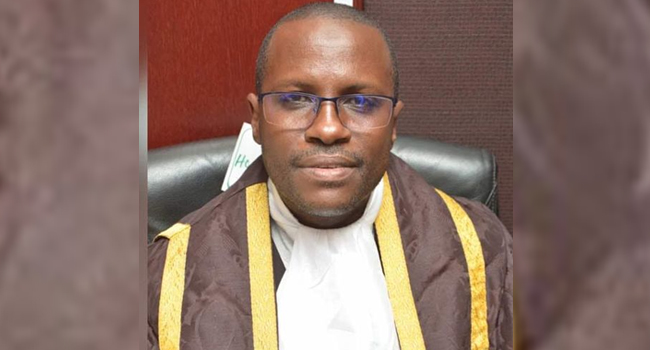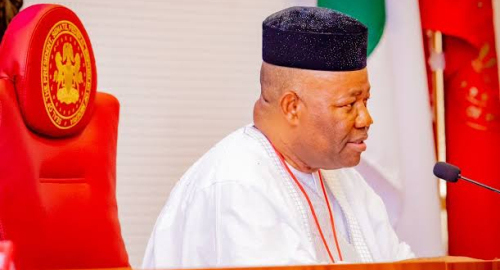Lawmakers Reject Bill To Stop Public Officers From Using Govt Funds To Train Their Children Abroad

The House of Representatives yesterday rejected a bill seeking to restrict public officers from diverting public funds to sponsor their children or wards education abroad.
The proposed legislation titled, “A Bill for an Act to Regulate International Studies for Wards and Children of Nigerian Public Officers, to Strengthen Indigenous Institutions, Provide Efficient Educational Services for National Development; and for Related Matters (HB. 448),” was sponsored by Hon. Sergius Ogun (PDP, Edo).
Leading the debate on its general principles, Ogun explained that the bill was regulatory not discriminatory and was proposed against the background of fallen standards in our educational system and the need to bring the sector up to speed with global best standards.
He lamented that as a result of the inability of government to provide quality education in its public educational institutions, Nigerians have resorted to private schools and foreign schools for their education.
The trouble with this, he said was that most of those who patronise private owned educational institutions or those who travel abroad to study are children and wards of Nigerian public officers.
He further explained that the bill does not prevent public officers or private citizens from sending their children for studies abroad, but only seeks to ensure that a public officer who desires to send his/her child/ward abroad, does not divert public funds to so do.
Ogun said, “The bill has eleven clauses. Clause one contains the objectives of the Bill. Clause two provides for the upgrading of public schools in Nigeria. Clause three seeks for the sensitization of public officers. Clause four provides that international studies shall be with leave. Clause five provides for the making of a declaration of means by the public officer. Clause six outlines the documents to accommodate the application for leave. Clause seven provides for verification of the declaration made. Clause eight states how the applicant is to be informed of the decision taken in respect of his application. Clause nine enshrines the offences and penalties under this bill. Clause ten encapsulates the interpretation section while clause eleven houses the citation section of the bill.”
However, opposing the proposed legislation, Hon. Chinyere Igwe opined that it offends fundamental human rights which guarantees freedom of movement.
He said most public officers that send their children to school abroad don’t do that with public funds, adding that he doesn’t agree that it was the reason the educational system in Nigeria is failing.
Corroborating, Igwe’s stance, Hon. Ossai Nicholas Ossai said: “It’s against the constitution in terms of discrimination. My children have the right to be educated anywhere in the world. The bill should not see the light of the day, he should just step it down.”
Following more opposing views and calls for withdrawal of the Bill, the Deputy Speaker, Hon. Idris Wase who presided over the session asked the sponsor if he wants to withdraw it.
Responding, Ogun, insisted that he would not withdraw the it, saying rather it should be voted on.
He said, “My colleagues should take time to read the bill’s draft before arriving at a conclusion. What’s wrong in having a regulatory authority look at this issue. ASUU is on strike. So it’s better to put it to question, I won’t step in down. Nigerians are watching you.”
Thereafter the Bill was put to a voice vote by Wase and majority of the lawmakers rejected it.



